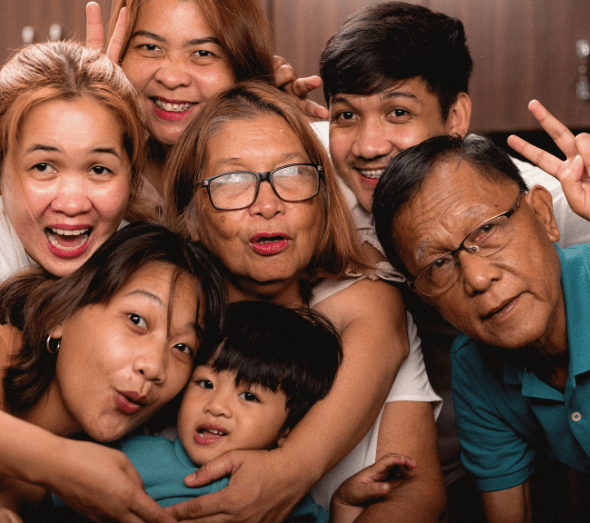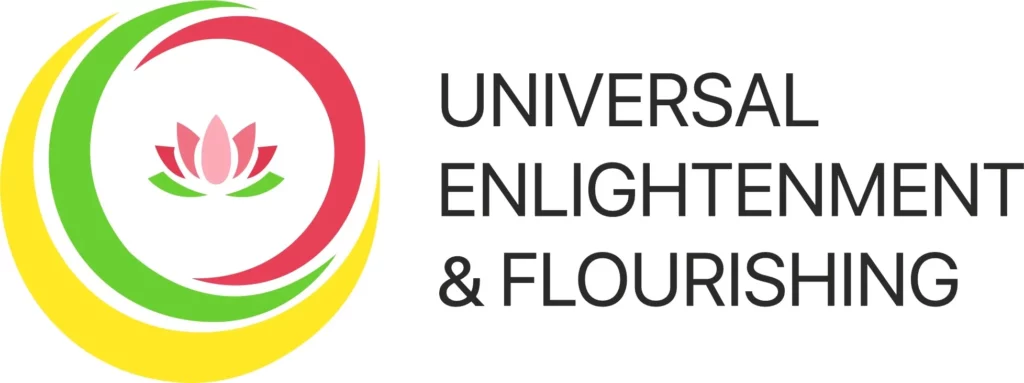Community is obviously a hugely important part of religious life in any tradition, and family—the first micro-community we learn to inhabit—serves as a model for broader community systems. The health of a community depends a lot on the health of its members’ family dynamics.
Fathers have a huge influence on family, often being the heads of families, and hence we dedicate this article to all fathers.
The family unit is where we first learn what it means to love and to be loved. If we do not learn how to love and be loved, it is doubtful that we will be able to love our neighbors, much less those who look and think differently than us. This link is made rather explicit in the scriptures and doctrines of many religions, which is why we see God described as ‘The Father’ or ‘The Mother’ and strangers described as our brothers and sisters.
But what is your family? Is it just mother, father, grandparents? Does it not include the person who cooks for you every day? Or your classmate who sat next to you for ten years? Today, in a world where structures and norms are changing faster than the seasons, and the world is becoming a global village, the very idea of family has morphed and extended to include surrogates. In place of the mother-father paradigm, there could be two fathers, or a single parent, or just a grandparent, or a mentor. The possibilities are endless, while their nurturing roles remain the same — the right kind of unconditional love, combined with a gradual development of all the faculties.
Even before globalization, the concept of family in many religions has extended well beyond those we can see and know. In Chinese traditions like Taoism and Confucianism, this extends to reverence and respect for departed ancestors. Confucianism lays great emphasis on filial piety. For the Baha’i faith, the world is one family and the worshiping community of those belonging to the faith has no hierarchy of power, as everyone in the community is equal.
In Japan, Okinawans live by the principle of ichariba chode, a local expression that means “treat everyone like a brother, even if you’ve never met them before.” Similarly, the Hindu Rishis practiced and propagated the philosophy of Vasudhaiva Kutumbakam, meaning “the whole world is your family.”

It is so seeped into the culture in India that it is common for a stranger to address you as brother, uncle, aunt, sister, son, or daughter.
All religions essentially state that the ultimate expression of love is to see the entire world as your family and to treat the most remote stranger — including a crow or a monkey or a tree or even a piece of earth — as your closest kin.
Judaism
“Honor your father and your mother, so that you may live long in the land the Lord your God is giving you.”
—Hebrew Bible (Exodus 20:12), Jewish text
“Start children off on the way they should go, and even when they are old they will not turn from it.”
—Hebrew Bible (2 Proverbs 22:6), Jewish text
Confucianism
“Being good as a son and obedient as a young man is, perhaps, the root of a man’s character.”
—The Analects (1:2), Confucian text
Islam
“Your Lord has commanded that you should worship none but Him, and that you be kind to your parents. If either or both of them reach old age with you, say no word that shows impatience with them, and do not be harsh with them, but speak to them respectfully and lower your wing in humility towards them in kindness and say, ‘Lord, have mercy on them, just as they cared for me when I was little.’ Your Lord knows best what is in your heart.”
—Qur’an (17:23-25), Muslim text
“Hold fast to God’s rope all together; do not split into factions. Remember God’s favor to you: you were enemies and then He brought your hearts together and you became brothers by His grace […] Be a community that calls for what is good, urges what is right, and forbids what is wrong: those who do this are the successful ones.”
—Qur’an (3:103-04), Muslim text
Christianity
“I will be a Father to you, and you will be my sons and daughters, says the Lord Almighty.”
—The New Testament (2 Corinthians 6:18), Christian text
“Anyone who does not provide for their relatives, and especially for their own household, has denied the faith and is worse than an unbeliever.”
—The New Testament (1 Timothy 2:8), Christian text
Hinduism
“When a family declines, ancient traditions are destroyed. With them are lost the spiritual foundations for life, and the family loses its sense of unity […] Social chaos is hell for the family and for those who have destroyed the family as well. It disrupts the process of spiritual evolution begun by our ancestors. The timeless spiritual foundations of family and society would be destroyed by these terrible deeds, which violate the unity of life.”
—The Bhagavad Gita, Hindu text
“Discrimination saying ‘this one is a relative; this other one is a stranger’ is for the mean-minded. For those who’re known as magnanimous, the entire world constitutes but a family.”
—Mahōpaniṣad, Hindu text
Baha’i
“A family is a nation in miniature. Simply enlarge the circle of the household, and you have the nation. Enlarge the circle of nations, and you have all humanity. The conditions surrounding the family surround the nation. The happenings in the family are the happenings in the life of the nation […] So it is in the great family of nations, for nations are but an aggregate of families. Therefore, as strife and dissension destroy a family and prevent its progress, so nations are destroyed and advancement hindered.”
—‘Abdu’l-Bahá, Baha’i leader
Taoism
“Cultivated in yourself virtue becomes real
Cultivated in your family virtue grows
Cultivated in your village virtue multiplies
Cultivated in your state virtue abounds
Cultivated in your world virtue is everywhere
Thus view others through yourself
View families through your family
View villages through your village
View states through your state
View other worlds through your world
How do you know what other worlds are like
Through this one”
—Tao Te Ching (ch 54), Taoist text
Buddhism
“The sangha is a community where there should be harmony and peace and understanding. That is something created by our daily life together. If love is there in the community, if we’ve been nourished by the harmony in the community, then we will never move away from love.”
—Thich Nhat Hanh, Buddhist monk and author
Modern Philosophy and Theology
“Religion creates community, community creates altruism, and altruism turns us away from self and toward the common good.”
— Rabbi Jonathan Sacks, British Rabbi and philosopher
“The associations with flourishing are much stronger for communal religious participation than for spiritual-religious identity or for private practices. It may be the confluence of the religious values and practices, reinforced by social ties and norms, that give religious communities their powerful effects on so many aspects of human flourishing.”
—Tyler J. VanderWeele, director of the Harvard Human Flourishing Program


